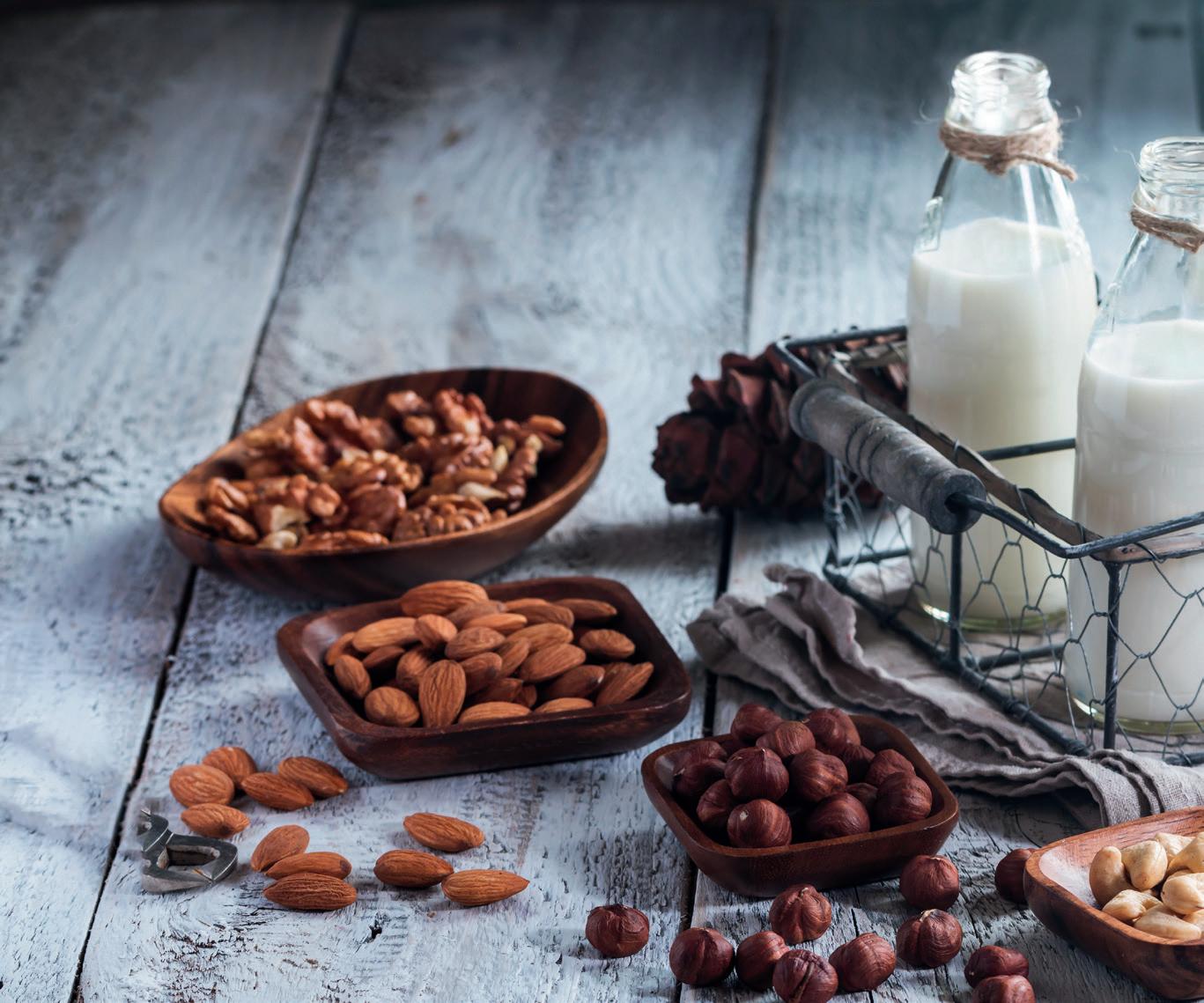
4 minute read
Sponsored content: Döhler urges investment in plant-based dairy alternatives
from Plant-based ingredients are here to stay: Overview of integration across food and drink categories
Döhler urges investment in plant-based dairy alternatives
Döhler is a global producer, marketer and provider of technologydriven natural ingredients, ingredient systems and integrated solutions for the food and beverage industry. Plant-based foods are part of Döhler's Rene Krebs DNA. Informa spoke to Rene Krebs, Head of the cereals, nuts & pulses business Head of the Cereals, Nuts & Pulses Business Unit unit, about the evolution of plant-based dairy alternatives, industry-wide challenges, Döhler Group and the R&D focus for the next five years.
Plant-based products are enjoying a surge but they are not exactly new. How has the consumer base evolved?
Twenty years ago the main target consumers were people with allergies or intolerances, such as lactose intolerance. Plant-based dairy alternatives had a distinctive taste and expectation was quite low. As the allergen-free market has developed, plant-based foods have moved into new applications, like yoghurt and cheese, and the product taste and the quality has improved significantly.
Now the major driver is sustainability, as people are aware that plant protein is much lower impact than animal protein. Health and wellness is also important, especially in Europe and North America. And of course people with allergies continue to support the plant-based market.
What are the sustainability considerations when sourcing raw materials?
As the world's population will rise to around 10 billion by 2050, global meat and milk production will also increase – with a significant impact on the environment. Eighty percent of agricultural land is already being used for livestock farming. Worldwide, livestock accounts for between 14.5% and 18% of human-induced greenhouse gas emissions. Thus, food production affects climate change.
The less we ship over the ocean the better. We can reduce our carbon footprint by sourcing within the region – and sometimes within a country, but then you have a conflict between economy and ecology because it may not be competitive. The exception is coconut, which is one of the only plant raw materials that is still shipped long distances because it doesn't grow everywhere.
Regional sourcing also impacts the carbon footprint of our customers downstream. We can give quite precise numbers on the impact of our recipes thanks to our sustainability programme, which we are continually strengthening to increase transparency.
How do you tackle sensory issues and other technical challenges?
On the sensory side, our philosophy is like medicine. We do as much as we can through prevention by paying attention to raw materials and processing technology, rather than curing off-notes at the end through flavour masking.
With the new generation of plant-based drinks we have to address issues of shelf life. Traditional plant-based products, like orange juice, have a low PH. The acidity makes shelf-life more manageable. But with oats, rice and almonds the PH is neutral so microorganisms grow faster. We want to achieve the highest shelf life feasible without using chemical ingredients.
What other challenges does the industry face?
The per capita demand is there and retailers want to cater to it, but there is a lack of capacity on the production and filling side. Water companies cannot bottle plant-based beverages because they are mostly unsuitable for UHT treatment, while many dairy companies are owned by farmers who are not in favour of facilitating the market for dairy alternatives.
Conversion of the dairy market to plant-based products in the southern part of Europe is around 10-15%. In Scandinavia, where there are some major players, it is 5-6%, but in Germany it is 1-2% at best. It is similar in France, UK, Holland and Eastern Europe. This shows the limitations due to lack of capacity, and it will probably last for the next two years.

How do you expect the dairy alternative market to evolve?
The biggest raw material in Europe is soy and the upcoming challengers are oat, rice, coconut, and almond. These are the 'mainstream' generation today and they have not yet reached their peak. While some new raw materials are emerging, there is less pull to develop the generation of tomorrow.
Döhler's approach is 'field to food application'. We are working on different raw materials, looking at different innovative technologies and applications – from drinks, to spoonable yoghurts, to cheese, to meat, to bakery, to confectionery. This is where the focus will lie for the next five years.
In the longer term, bio fermentation (or enzymatic technology) is on the horizon. There are some bio fermented products on the market but the demand is still small and it is too early to say whether they will go mainstream.
Is plant-based market growth anywhere near peaking?
It is hard to see a clear picture of the audience for plant-based products because it is not as homogenous as for other categories. There are no clear preferences; some people prefer oat but dislike rice, and vice versa. There might be growth from taking away from the dairy industry, from the meat industry, and from the cheese industry.
From my personal point of view I am convinced that the plant-based sector will continue to grow due to people's increasing health awareness and sustainability concerns.











